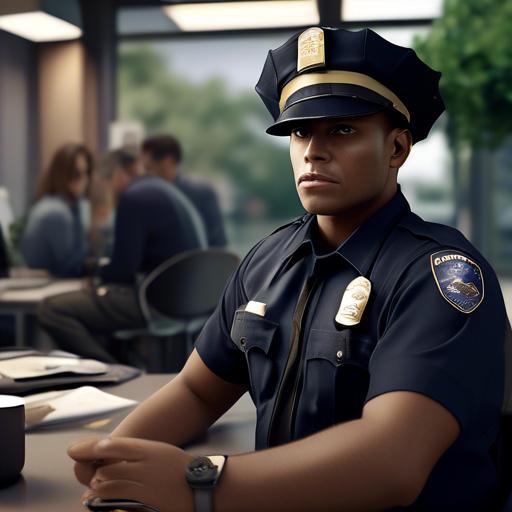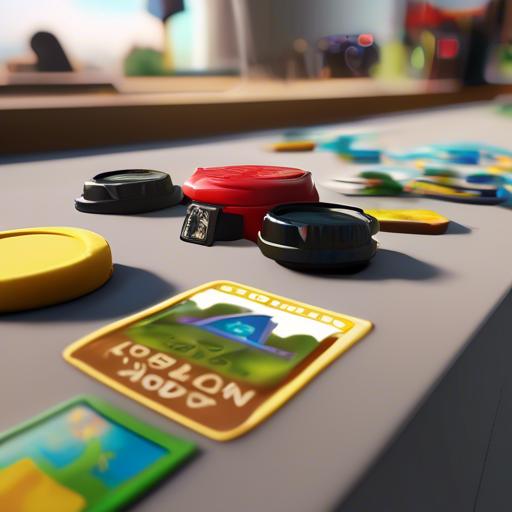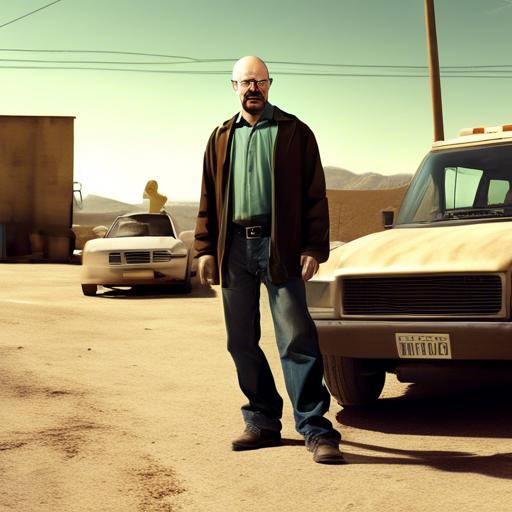As I sat across from him in a dimly lit café, I couldn’t help but be struck by the air of authority that surrounded him. Yet, there was something curious about this man. He was a cop without a badge – a former law enforcement officer who had traded in his uniform for civilian clothes. In this article, we delve into the world of those who continue to serve and protect, even after hanging up their badge.
The Lost Identity: Living as a Cop Without a Badge
Living as a cop without a badge is like walking a fine line between two worlds. On one hand, there is a sense of duty and duty that comes with the job, ingrained in every fiber of your being. conversely, there is a feeling of emptiness and loss, as if a part of your identity has been stripped away.
Without the badge to show your authority, you navigate through life with a sense of vulnerability and uncertainty. People no longer see you as the protector, the enforcer of justice. Instead, you are just another face in the crowd, blending in with the masses. But deep down, you know that the cop inside of you never truly goes away. It’s a constant battle between the person you once were and the person you have become,a constant struggle to reconcile your past with your present.
Navigating Legal Boundaries: Understanding the Limits of Authority
In a world where authority is often represented by a badge and uniform, what happens when someone is tasked with navigating legal boundaries without that customary symbol of power? Imagine a cop without a badge, still committed to upholding the law and serving their community. this individual may not have the same outward authority as their colleagues, but their dedication to justice is unwavering.
This unique perspective challenges our preconceived notions of authority and raises important questions about the limits of power. How can someone effectively enforce the law without a badge? What does it mean to have authority beyond a title or uniform? Through their actions and dedication, a cop without a badge reminds us that true authority comes from within, and that the desire to do what is right transcends any external markers of power.
building Trust: Strategies for Establishing Credibility in the Community
One of the most crucial elements in establishing credibility within a community is building trust.Without trust, all othre efforts to connect with residents will fall flat. As a law enforcement officer, credibility is especially important as it directly impacts the effectiveness of your role in keeping the community safe.
Imagine a cop without a badge - someone who lacks the authority and respect that comes with the uniform. To gain the trust of the community, officers must go beyond their official duties and engage with residents on a personal level. This can be achieved through various strategies such as active listening, transparency, and follow-through on promises. By demonstrating integrity and consistency in their actions, officers can show that they are not just enforcers of the law, but also allies in the community’s well-being.
Empowering Others: Leveraging Skills to Make a Positive Impact
Imagine a world where individuals could make a difference without needing a badge or a uniform. this is the premise behind the concept of being a “cop without a badge.” It’s about using your skills and knowledge to empower others and create a positive impact in your community.
Whether it’s teaching self-defense classes, organizing neighborhood watch programs, or offering free legal advice, there are countless ways to leverage your expertise for the greater good.By taking on the role of a “cop without a badge,” you can help strengthen the social fabric of your community and make a difference in the lives of those around you.
Q&A
Q: can you explain the concept of a “cop without a badge”?
A: A cop without a badge is someone who may have once been a police officer, but no longer holds that official title or position.
Q: What are some reasons a person may become a cop without a badge?
A: There are a variety of reasons a person may become a cop without a badge, including retirement from the force, resignation from the department, or disciplinary action that results in the loss of their badge.
Q: How do cop without a badge continue to uphold justice in their communities?
A: Many cops without a badge continue to uphold justice in their communities by offering their skills and experience in other capacities, such as private security, consulting, or volunteering in local crime prevention programs.
Q: What challenges do cops without a badge face in their new roles?
A: Cops without a badge may face challenges such as not having the same authority or resources as they did when they were active duty police officers, as well as potential stigma or mistrust from members of the community.
Q: How can the public support cops without a badge in their efforts to uphold justice?
A: The public can support cops without a badge by acknowledging their experience and skills, volunteering with or donating to organizations they are involved with, and advocating for policies that support their continued contributions to community safety.
Final Thoughts
As we wrap up our exploration of the intriguing world of a cop without a badge, it is clear that the line between official law enforcement and private security can sometiems blur. Whether it be the dangers they face or the motivations driving them, these individuals walk a fine line between justice and vigilantism. One thing is for certain, their unique perspective sheds light on the complexities of modern crime-fighting.As we continue to navigate the ever-changing landscape of law enforcement, let us remember the important role that all members of society play in keeping our communities safe.


